What Are Semantic Keywords?


- By seo
- February 22, 2024
- 0 Comments
Semantic keywords refer to words or phrases that are related in meaning to a particular topic or concept. In the context of search engine optimization (SEO), they go beyond the traditional approach of focusing solely on specific target keywords.
Instead, semantic keywords consider the context and intent behind user searches, allowing search engines to better understand the user’s query and deliver more relevant results.
Semantic keywords consider synonyms, related concepts, and user intent to deliver more accurate and personalized search results. This is made possible through advancements in natural language processing and machine learning algorithms, which enable search engines to comprehend the meaning and context of words in a query.
Additionally, finding semantic keywords is also different from generally choosing keywords for SEO.
To illustrate, let’s take an example –
Traditional Keyword: “Apple”
Previously when a user searched for the word “apple,” search engines would have a hard time determining the user’s intent.
It could refer to the fruit, the tech company, or even a reference to the record label.
This lack of context could lead to search results that are not precisely aligned with what the user was looking for.
Semantic Keywords: “Apple fruit,” “Apple iPhone,” “Apple Inc.”
With the introduction of semantic keywords, search engines can better interpret the user’s intent by understanding the search context. For example, if a user searches for “Apple iPhone,” search engines will recognize that the user is likely looking for information related to the tech company’s smartphones and will present relevant results accordingly.
Here are a few more examples of semantic keywords –
| Traditional Keyword | Semantic Keywords |
|---|---|
| Car | Automobile, Vehicle, Auto, Car models, Car reviews |
| Digital Marketing | Online Marketing, Internet Marketing, Digital Advertising, SEO, Social Media Marketing |
Note: Semantic keywords and LSI (Latent Semantic Indexing) Keywords are different and cannot be used interchangeably.
How Semantic Keywords Changed SEO?
Semantic keywords have brought about significant changes in the field of SEO, transforming how search engines understand and rank content.
Here are some of the key ways in which semantic keywords have impacted SEO –
Intent Focus Search Results
With semantic keywords, search engines have shifted their focus from merely matching specific keywords to understanding the search intent behind user queries.
Search results are now more relevant, providing users with content that best answers their questions or fulfills their needs.
Contextual Relevance
Semantic keywords consider the context in which a word or phrase is used.
This has led to more accurate interpretations of search queries. As a result, websites that use semantic keywords effectively are more likely to appear in front of their target audience.
Natural Language Processing
The advancement in natural language processing (NLP) has been instrumental in making semantic keywords a reality.
NLP allows search engines to understand the meaning and nuances of words in the context of a sentence or query, enabling them to provide better search results.
Long-Tail Keyword Optimization
Semantic keywords have emphasized the importance of long-tail keywords, which are more specific phrases that users are likely to use in their searches. Content optimized with relevant long-tail semantic keywords has a higher chance of ranking well for niche queries, attracting more targeted traffic.
Latent Semantic Indexing (LSI)
Search engines now use latent semantic indexing to identify relationships between words and phrases within a text.
This helps them determine the topical relevance of content and ensures that relevant pages appear for a broader range of related keywords.
Voice Search Optimization
The rise of voice search, where users speak natural language queries to virtual assistants like Siri or Alexa, has been driven by semantic keywords.
Voice searches are typically more conversational and question-based, and search engines use semantic understanding to provide accurate answers.
Mobile and Local SEO
Semantic keywords play a crucial role in local searches, where users often include location-based phrases like “near me.” Mobile users, who frequently use voice search and conversational queries, also benefit from semantic keyword optimization.
In short, semantic keywords have shifted SEO from a rigid keyword-centric approach to a more dynamic, context-driven strategy.
By aligning content with user intent and providing relevant, high-quality information, websites can better connect with their audience, improve user experience, and achieve higher rankings in search engine results pages.
Why are Semantic Keywords Important for SEO?
Using semantic keywords for SEO offers several compelling benefits that can significantly enhance your website’s performance.
Here are some key reasons why incorporating semantic keywords is crucial for SEO success –
1. Improved Relevance and Quality Content
By incorporating semantic keywords, you can create more relevant content aligned with what users are looking for.
This emphasis on relevance encourages content creators to produce informative, valuable, and high-quality content, ultimately benefiting users and search engines alike.
2. Better User Experience
When search engines understand the meaning behind queries, they can deliver more accurate and helpful search results.
This leads to a better user experience, as users find content that directly addresses their needs, reducing bounce rates and encouraging longer time spent on your website.
3. Expanded Keyword Reach
Semantic keywords enable you to target a broader range of related terms and phrases.
This means that your content has the potential to rank for various search queries, capturing diverse and qualified traffic and expanding your website’s reach.
4. Stay Ahead of Algorithm Updates
Search engine algorithms constantly evolve, focusing on providing the best user experience.
Semantic keywords align with these algorithmic advancements, ensuring that your content remains relevant and valuable in the eyes of search engines.
5. Competitive Advantage
As semantic keywords gain popularity, early adopters can gain a competitive advantage.
By optimizing your content with semantic keywords, you position yourself as a forward-thinking, authoritative source within your niche.
6. Local SEO
For businesses with a local presence, semantic keywords can be particularly beneficial in improving local SEO and targeting location-specific searches, such as “near me” queries.
This optimization can lead to increased foot traffic and conversions from local customers.
7. Future-Proofing Your SEO Strategy
As search engines become increasingly sophisticated in understanding user intent, semantic keywords will play a central role in shaping the future of SEO.
By integrating them into your strategy now, you can future-proof your SEO efforts and ensure your content remains relevant in the ever-changing digital landscape.
Hence, semantic keywords offer a more sophisticated and user-focused approach to SEO.
Adopting them in your content and optimization efforts enhances your website’s chances of attracting the right audience, delivering valuable information, and achieving higher rankings for semantic search in search engine results.
How To Find Semantic Keywords?
Finding semantic keywords involves identifying words or phrases closely related or semantically linked to a particular topic or concept.
Here are some methods to help you find semantic keywords:-
1. Brainstorming And Mind Mapping
Start by brainstorming a list of keywords related to your target keyword or topic.
Then, organize these keywords and identify relationships between them visually. This can help you uncover synonyms, related terms, and concepts.
2. Keyword Research Tools
Use keyword research tools like Google Keyword Planner, SEMrush, Ahrefs, Google Trends, or Ubersuggest to discover related keywords and phrases. These SEO tools often provide suggestions based on search volume, competition, and relevance.
Google's Keyword Planner
Use Google’s Keyword Planner to find semantically related keywords by entering your primary keyword.
The tool will provide keyword suggestions, search volume, and competition data.
Open this tool and go to “Discover new keywords.”

Now, suppose you enter “travel destinations” into the Keyword Planner.
It might generate related keywords like “best vacation spots,” “top travel places,” and “popular holiday destinations.”

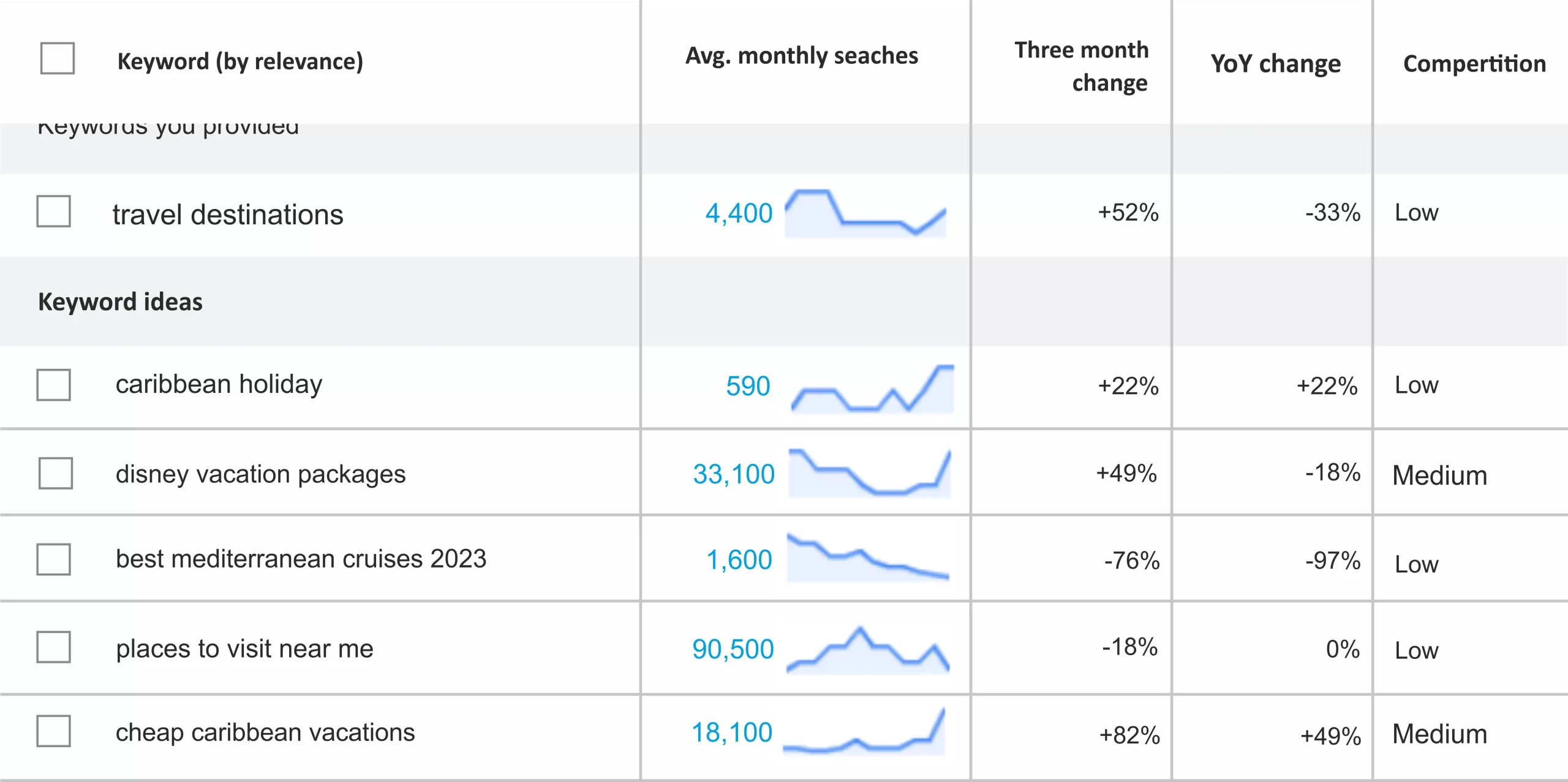
Furthermore, this tool offers filters to include or exclude some terms depending on various attributes.
For instance, if you add or remove certain countries, you can do it as follows.

Google Trends
Enter your target keyword into Google Trends to explore its popularity over time and related queries that have seen increased interest.
You can filter the results by location and time.
When analyzing the Google Trends data for “home workouts,” you may find that related queries such as “bodyweight exercises at home” and “home workout equipment” have been gaining popularity.
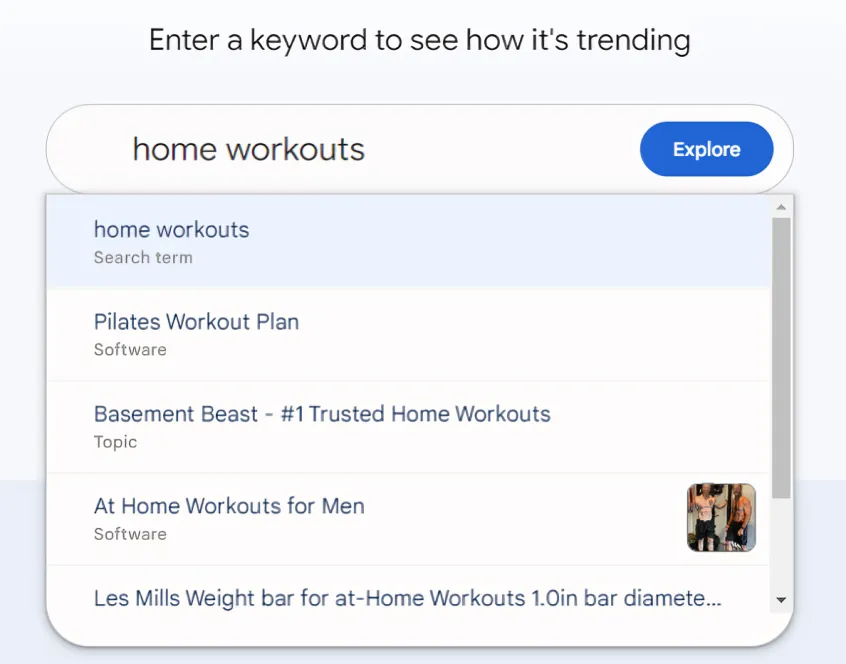
Next, select the time duration and region to narrow your keyword research.

Find suitable semantic keywords in the “Related queries” and “Related Topics” sections.
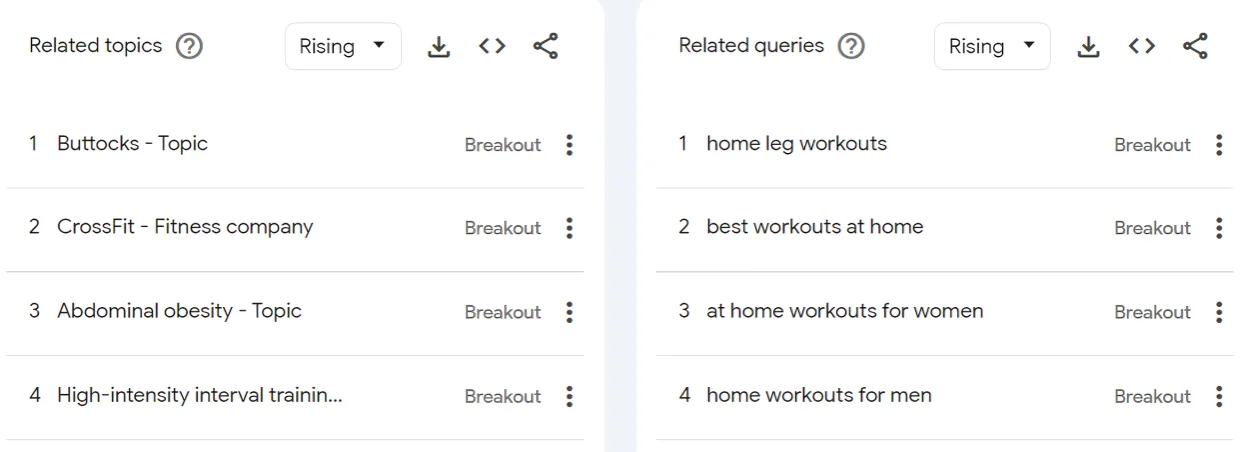
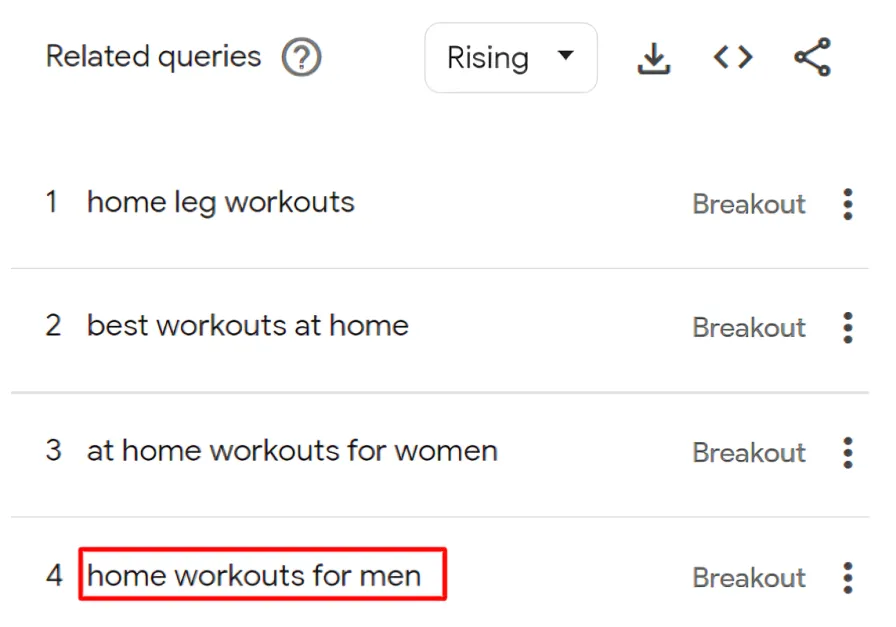
Furthermore, if you need the most popular related topics or queries, switch to “Top” results.
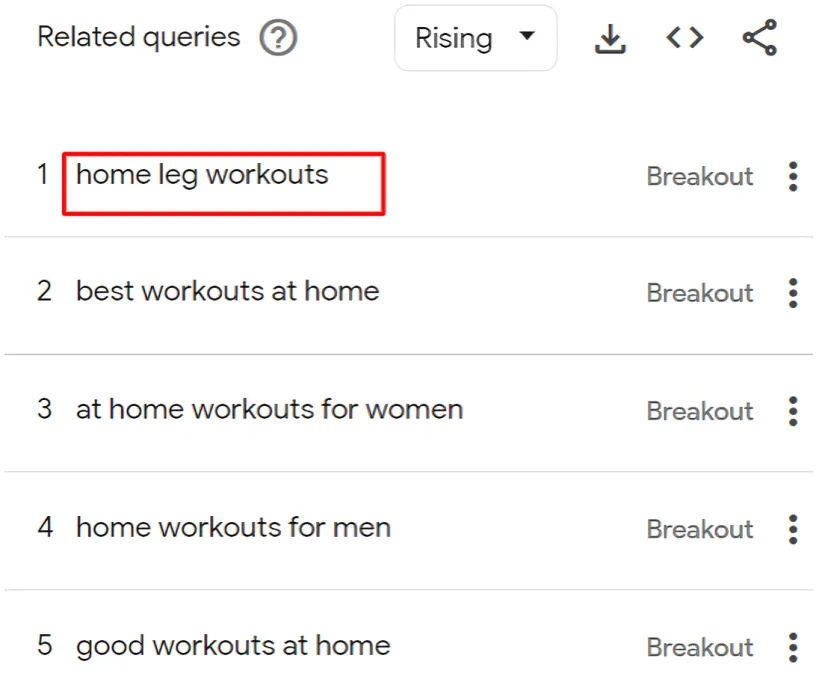
3. Semantic Analysis Tools
Some tools specifically analyze the semantic relationships between words and phrases. These tools can help you identify synonyms, antonyms, hypernyms, hyponyms, and other semantic connections.
Examples include Semantic Scholar, TextRazor, and WordNet.
4. Search Engine Suggestions
Utilize search engines like Google or Bing to discover related search terms.
As you type a keyword into the search bar, search engines often provide autocomplete suggestions based on popular queries related to your input.

Type your target keyword into Google’s search bar and examine the “Searches related to” section at the bottom of the search results page, the “People also ask” section, and “Bolded terms.”
This section displays semantically related keywords that users frequently search for.
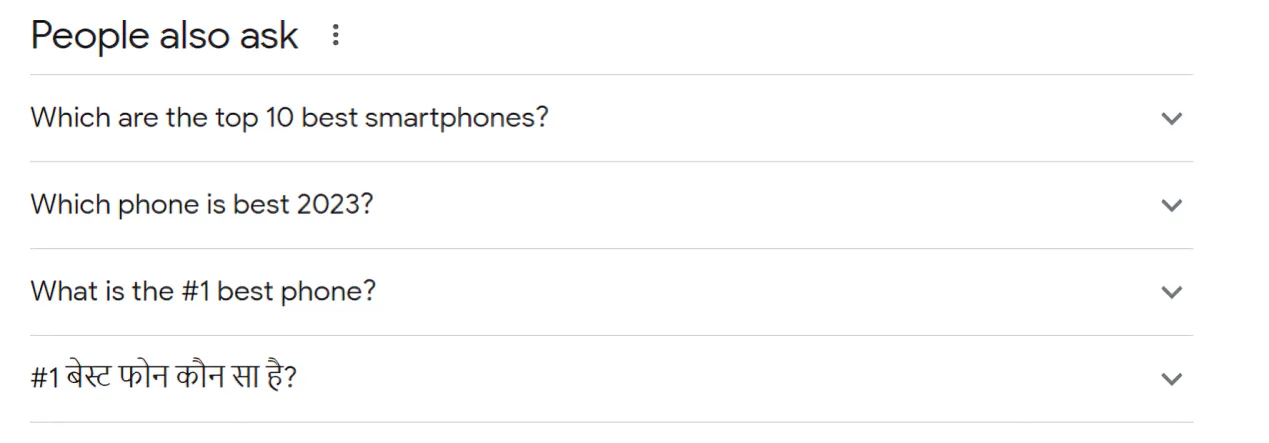
Trying searching for “best smartphones” on Google might show related searches like “top-rated mobile phones,” “latest smartphone reviews,” and “top smartphones 2024.”
Related Searches
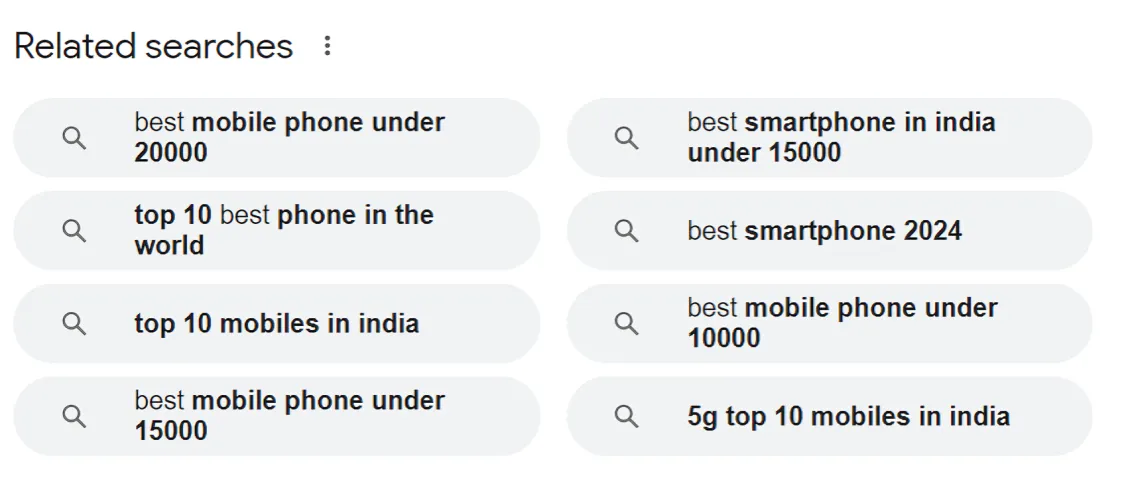
5. Competitor Analysis
Analyze the keywords used by competitors in your industry.
This can provide insights into which keywords are relevant and valuable within your niche.
6. Natural Language Processing (NLP) Techniques
NLP techniques, such as latent semantic analysis (LSA) or word embedding models like Word2Vec or GloVe, can analyze large collections of text data and identify semantically related words and phrases.
These methods can generate a comprehensive list of semantic keywords relevant to your topic or content. Remember to prioritize the most relevant keywords with considerable search volume and low competition to maximize the effectiveness of your keyword strategy.
Final Thought-
Semantic keywords have revolutionized the SEO landscape, ushering in a new era of user-centric optimization.
By understanding the intent behind user searches and providing more relevant, high-quality content, websites can unlock the full potential of SEO.
As search engines continue to evolve, embracing semantic keywords remains paramount for staying ahead in the competitive digital realm.
Frequently Asked Questions (FAQs)
1.What Is A Semantic Keyword For SEO?
A semantic keyword for SEO refers to a word or phrase contextually related to a primary keyword.
It goes beyond the traditional approach of exact-match keywords and focuses on the meaning and intent behind user searches, allowing search engines to deliver more relevant results.
2. What Is An Example Of A Semantic Keyword?
Example: For the primary keyword “apple,” semantic keywords could be “Apple Inc.,” “apple fruit,” or “Apple iPhone.”
These keywords are related to the primary topic but provide additional context and meaning.
3.What Is Semantic Vs. Keyword Search?
A keyword search focuses on finding exact-match keywords to optimize content for specific search terms.
On the other hand, semantic search involves understanding the intent and meaning behind user queries and providing relevant results based on context.
4. Is Google A Semantic Search?
Google utilizes semantic search to understand user intent and deliver more relevant search results.
It considers the context of queries, user behavior, and the relationships between words to provide better answers to users’ questions.
5. What Is The Semantic Relevance Of Keywords?
Semantic relevance of keywords refers to how closely a keyword relates to the primary topic or concept.
It signifies the contextual connection between keywords and user intent, helping search engines understand the content’s relevance to a search query.

